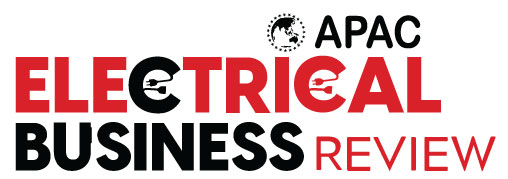Thank you for Subscribing to Electrical Business Review Weekly Brief
The Evolving Role of Electrical Contractors in a Digitally Transformed World
Electrical Business Review | Wednesday, June 21, 2023
The role of electrical contractors has transformed significantly in recent years, driven by the integration of smart technology, renewable energy systems, and the IoT.
FREMONT, CA: In today's fast-paced and digitally transformed world, the role of electrical contractors has expanded beyond traditional wiring and installations. With the integration of smart technology, renewable energy systems, and the Internet of Things (IoT), electrical contractors are playing a pivotal role in shaping the future of the electrical industry. This article explores the evolving responsibilities of electrical contractors in meeting the demands of a rapidly changing landscape.
1. Embracing Smart Technology:
Stay ahead of the industry with exclusive feature stories on the top companies, expert insights and the latest news delivered straight to your inbox. Subscribe today.
As buildings become smarter and more connected, electrical contractors are at the forefront of integrating and maintaining these advanced systems. They are skilled in installing and configuring automation systems, energy management solutions, and intelligent lighting controls. By leveraging their expertise, electrical contractors enable seamless communication between devices and ensure optimal energy efficiency in buildings.
2. Renewable Energy Installations:
With the increasing emphasis on sustainable energy sources, electrical contractors are actively involved in installing and maintaining renewable energy systems. They are crucial in setting up solar panels, wind turbines, and other green energy infrastructure. Electrical contractors are well-versed in the intricacies of renewable energy technology, ensuring efficient energy generation and reducing the carbon footprint.
3. Advancing Electrical Safety:
Electrical safety remains a top priority in the industry, and electrical contractors are instrumental in maintaining and enhancing safety standards. They conduct thorough inspections, identify potential hazards, and implement safety protocols to protect professionals and end-users. Electrical contractors keep abreast of the latest codes and regulations, guaranteeing compliance and minimizing electrical risks.
4. Internet of Things (IoT) Integration:
The rise of IoT has revolutionized how electrical systems operate, and electrical contractors are essential in integrating IoT devices seamlessly. Electrical contractors possess the expertise to ensure a reliable and secure network, whether it's connecting sensors, security systems, or intelligent appliances. Their ability to understand complex connectivity requirements and troubleshoot issues makes them indispensable in the IoT era.
5. Energy Efficiency Consultation:
As energy costs continue to rise, electrical contractors are sought-after consultants for optimizing energy efficiency. They conduct energy audits, analyze consumption patterns, and recommend practical solutions to reduce energy waste. Electrical contractors assist in implementing energy-saving measures, such as LED lighting retrofits and power management systems, enabling businesses and homeowners to save on energy bills while reducing their environmental impact.
6. Adapting to Evolving Technologies:
The electrical industry constantly evolves, with new technologies and innovations emerging rapidly. Electrical contractors embrace continuous learning and professional development to stay up-to-date with the latest trends. They invest in training programs to acquire the skills to navigate emerging technologies like energy storage systems, electric vehicle charging infrastructure, and smart grid advancements.
Conclusion:
The role of electrical contractors has transformed significantly in recent years, driven by the integration of smart technology, renewable energy systems, and the IoT. Beyond traditional electrical installations, these professionals are now responsible for integrating complex systems, enhancing energy efficiency, and ensuring electrical safety. As the industry continues to evolve, electrical contractors play a pivotal role in driving innovation, sustainability, and reliable power delivery. Their expertise and adaptability are critical in meeting the requirements of a digitally transformed world and shaping the future of the electrical industry.
More in News




